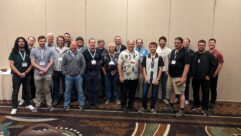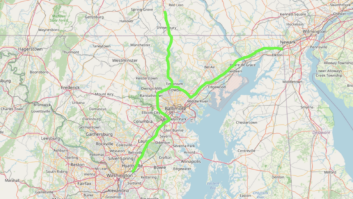WASHINGTON � The FCC finalized rules for spectrum sharing in the Citizens Broadband Radio Service band in April 2016, making 150 MHz available for mobile broadband and other commercial uses. However, before any of that spectrum can be shared, a �seemingly complex framework� needs to be put into place, according to fiercewireless.com.
There will be three tiers: One for incumbents, a Priority Access tier, and a General Authorized Access tier. Those three tiers will be coordinated through dynamic Spectrum Access System administrators and Environmental Sensing Capability operators. �This is a new way to use spectrum,� said Monica Paolini, principal at Senza Fili Consulting, quoted in the same article. �It�s a completely new approach…but we don�t know how it�s going to work out in practice because there�s a lot of questions, obviously. But the implications are huge…if this works, you can use the same or similar approach to other bands as well, and that�s a very good way to increase spectrum efficiency.�
Federated Wirelessexpects products to be commercially available by the third quarter of this year, and nationwide ESC deployment is on track to be completed by the end of 2017.
Two of the U.S. big 4 mobile phone system operators are preparing to test the possibilities for 3.5GHz wireless broadband services in the coming months, reportslightreading.com.
- �� � ��T-Mobile US Inc. applied to the FCC for an experimental radio license to test 3.5GHz equipment in Washington State. The transmit power ranges listed in the license request suggest that the tests are for indoor applications.
- �� � ��AT&T was awarded a license to test a 3.5GHz network in March. The propagation tests will take place in California’s Central Valley, including locations in Kern, Fresno, Merced, Tulare, Kings, and San Joaquin counties.
�












